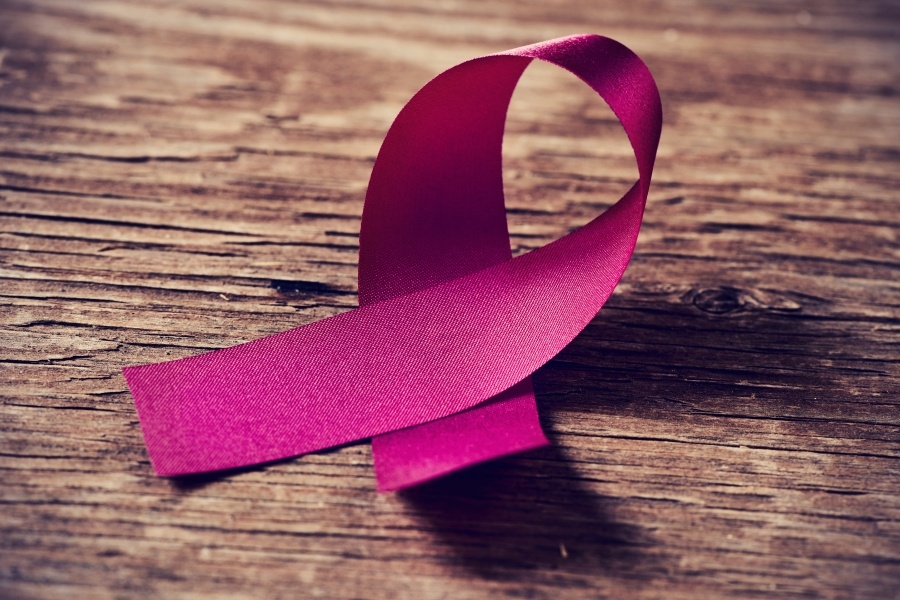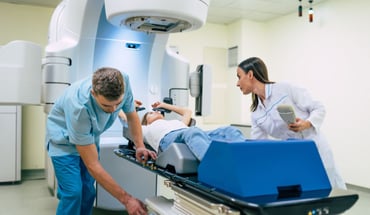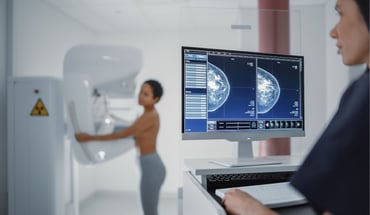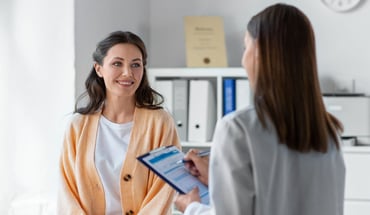
October is Breast Cancer Awareness Month, making it a great time to learn a little more about breast cancer screenings for yourself or a loved one. The information below will help you better understand why mammograms are important, other potential screening methods, when you should be screened, and what can be done if someone needs a mammogram but cannot afford one. This knowledge can help you be better informed so you can share it with others this October, as well as the rest of the year.
Why are Mammograms Important?
Mammograms are a safe and proven way to detect breast cancer in its early stages. A mammogram, which is an X-ray of the breast, allows the radiologist to see changes in the breast tissue that you would not be able to feel during a self-exam or a clinical exam (one performed by a health care provider).
Breast cancer screening mammograms are important for all women, not just women with a family history of breast cancer. This is because only around 10% of breast cancer occurs in people with a family history, according to the National Breast Cancer Foundation. In fact, research cannot point to specific causes of most breast cancers which means that it can affect just about anyone.
What Are Other Breast Cancer Screening Methods?
The American Cancer Society indicates that mammography is the preferred breast cancer screening test. A clinical or self-exam of the breast without any other regular screening is not a reliable way to detect breast cancer. This is because a mammogram can find it much sooner than it can be felt. However, all women should be familiar with how their breasts normally look and feel and report any changes to your doctors right away if anything looks or feels different.
If you ever notice any changes in your breasts, be sure to follow up with your physician so he or she can determine if further testing might be appropriate. Should it turn out to be breast cancer, you will be able to see a breast cancer specialist while it's still in an early stage. The earlier breast cancer is found and treated, the better the outcome for the patient.
When should I have a mammogram?
The American Cancer Society currently recommends the following for women at average risk for breast cancer:
- Women ages 40-44: optional annual mammograms
- Women ages 45-54: annual mammograms
- Women 55 and older: if in good health, annual or biennial (every other year) mammograms
If you have an immediate family member who had breast cancer be sure to talk with your a doctor who may recommend screening at an earlier age. You may also be a candidate for genetic screening to determine if there is a hereditary link to your breast cancer.
Is There Financial Help for Those Who Need to be Screened but Can't Afford It?
The National Cancer Institute states that insurance plans covered by the Affordable Care Act must cover screening mammograms for women over 40 years old. If you do not have insurance, Medicaid and Medicare typically cover all or most of the cost of the mammogram. However, if you do not have insurance and do not receive Medicaid or Medicare, there are other options.
The Virginia Department of Health offers the Every Woman's Life program to help uninsured, low-income women gain access to free breast and cervical cancer screening services.
The American Breast Cancer Foundation can also provide assistance with covering the costs of a mammogram if it's not covered by a woman's health insurance. To seek assistance or learn more about ABCF's Breast Cancer Assistance Program, contact the toll free number, 844-219-ABCF (2223) to speak with a Program Specialist.
If you are located in Virginia near one of our Virginia Oncology Associates practices in the Hampton Roads Region, we have a Cancer Resources section on our website that would be beneficial to you. This section includes information on community resources, support groups, and breast cancer-specific organizations where you can learn more about breast cancer and support options.





